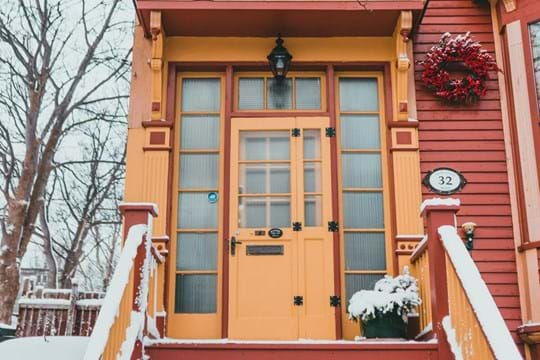Easy to Do:
Turn down your thermostat and bundle up: Wearing layers or throwing on a blanket can keep you warm while relying less on your heat source.
Turn Down Water Heater: Lowering the water heater's temperature setting minimizes energy usage. For most people, keeping the temperature set at 120 degrees provides plenty of hot water. To save more, consider adding a hot water heater blanket, which is a layer of insulation that wraps around the hot water tank.
Avoid Unnecessary Hot Water Use: Cold water is fine for washing most clothing. Running your dishwasher instead of hand-washing your dishes saves both energy and water.
Open/Close Window Coverings: Using natural sunlight during the day and insulating against cold at night helps regulate indoor temperatures efficiently.
Seal cracks in windows, doors and baseboards: Heat moves from hot to cold, so keep warm air inside your home by sealing or weatherstripping drafty areas.
Change the Furnace Filter: Make sure to change filters as recommended. Clogged filters make your furnace work harder and use more energy.
Close the Damper: If you have a fireplace, close the damper when not in use. Heat can escape up the chimney if left open.
Don’t Block Vents: If furniture or drapes are blocking your heating vents, you’re making your furnace work harder. Ensure vents are clear or install vent extenders so air can move freely.
Place Rugs on Hard Floors: Rugs are a layer of insulation between your feet and chilly hard floors. Area rugs, especially with a rug pad underneath, are a decorative way to warm up a room.
Medium Effort:
Maintain Your Furnace: Schedule an annual heating system check-up early each winter to ensure that your system is clean and ready to run efficiently. You’ll find problems early and save the inconvenience, discomfort, and expense of a breakdown during a cold snap.
Use a Programmable Thermostat: Unlike traditional thermostats, programmable thermostats make it easy to adjust the temperature of your home while you’re away which can result in significant savings.
Additionally, you may qualify for an incentive through Intermountain Gas or Idaho Power for installing a Smart Thermostat.
